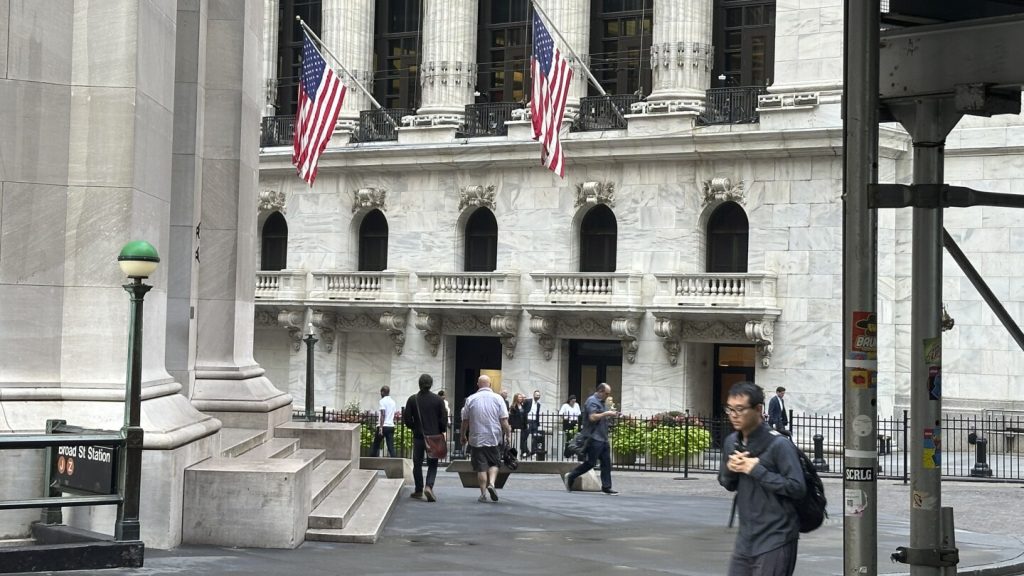Stocks on Wall Street experienced another sharp decline on Friday, with technology stocks taking a hit after a weak update on the U.S. job market triggered concerns about the economy. The S&P 500 dropped 1.7%, marking its worst week since March 2023. Tech companies like Broadcom and Nvidia led the market lower, amid worries that their valuations had become too high during the artificial intelligence boom. The Dow Jones Industrial Average also fell by 1%, erasing earlier gains of 250 points. Treasury yields saw significant swings in reaction to the disappointing jobs report, which showed that U.S. employers had hired fewer workers than expected.
The softening of the job market raised questions about the Federal Reserve’s upcoming interest rate cut decision at its meeting later in the month. The Fed is now shifting its focus towards protecting the job market and preventing a recession, as it had maintained the federal funds rate at a two-decade high for over a year. Wall Street is concerned that potential rate cuts may come too late and not be sufficient to prevent a recession, which would negatively impact corporate profits. Despite the disappointing jobs report, there were some positive data points, such as a slight improvement in the unemployment rate to 4.2%.
Federal Reserve board governor Christopher Waller emphasized the importance of being data-dependent in determining monetary policy. While acknowledging the cooling of the labor market, he expressed confidence that the economy was not headed for a recession. However, the pace and depth of future rate cuts are still uncertain. Treasury yields experienced volatility as traders tried to anticipate the Fed’s next moves. Despite the market uncertainty, some analysts remain optimistic about economic growth continuing, cautioning against knee-jerk reactions to market fluctuations.
Big tech stocks faced significant declines on Friday, with companies like Broadcom and Nvidia experiencing sharp drops in their stock prices. Broadcom, which reported better-than-expected profits and revenue, still saw a 10.4% decline in its stock price. Nvidia, which had been riding high on the AI frenzy, also faced a 4.1% drop. The volatility in these tech stocks reflects concerns about the sustainability of their growth rates. On the other hand, U.S. Steel saw a 4.3% increase in its stock price after the CEO of a rival company expressed interest in acquiring U.S. Steel.
Stock markets in Europe and Asia also experienced declines on Friday, with trading in Hong Kong being halted due to a typhoon. Despite the rough week for stocks, the S&P 500 remains relatively close to its all-time high set in July and is still up for the year. The uncertainty surrounding the economy and the potential impact of future rate cuts by the Federal Reserve continue to weigh on investor sentiment. However, analysts remain cautiously optimistic about the outlook for economic growth and corporate earnings.


